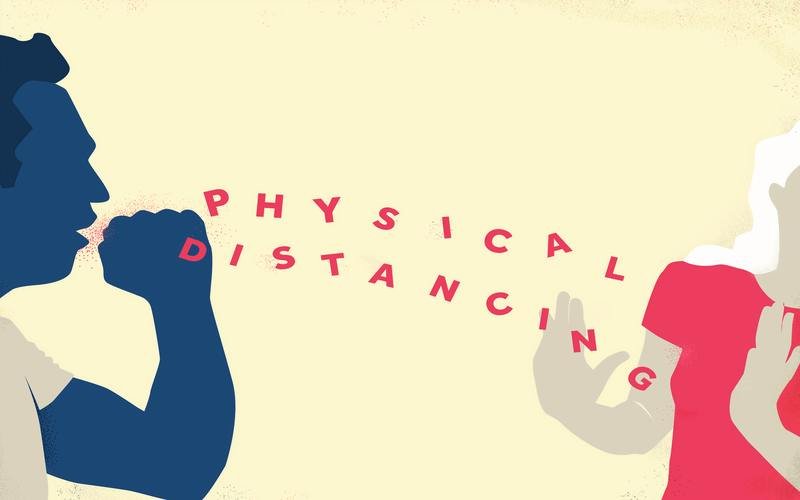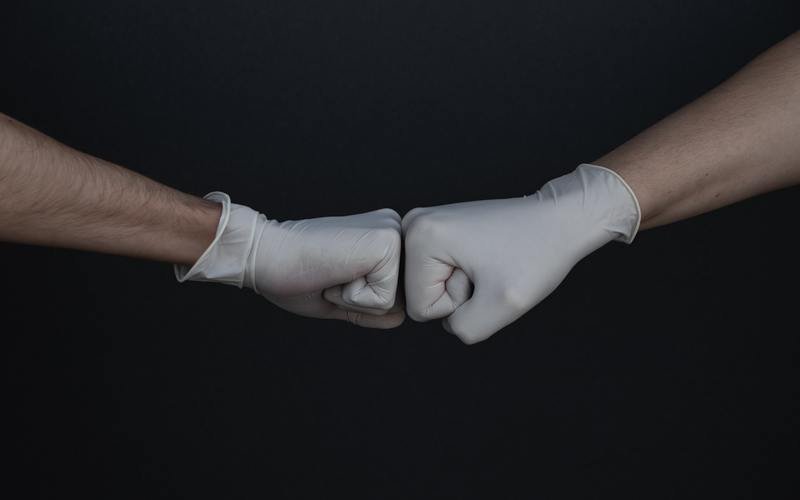It is no surprise that the virus has taken over the world by now, and every one of us is feeling anxious about the uncertainty it has caused in our lives. One of the many changes it has brought in our lives is the way we work.
We are all grieving the loss of something. For some people, it might be the loss of their jobs. For children, it might be the loss of being able to go to school. Either way, we are grieving the loss of the joy of going outside without the fear of getting affected by the virus.
We had to say goodbye to our “normal” life. It is okay to feel unmotivated, anxious, and uncertain right now. We are in the middle of a pandemic, after all. It is okay to take your time and figure out your own way of dealing with this loss. You do not have to feel bad about feeling bad, your feelings are valid, and you have the permission to feel.
One of the many things which have changed during this time is that we have to convert a section of our homes into our office. Working from home can be difficult for our mental health and can hinder our productivity. We are all waiting for the quarantine to get over and everything to go back to normal, but the reality is that we might never be able to go back to the way things were before. The custom of shaking hands might be dead even after quarantine is over.
The rules for social distancing will be in place until we find a vaccine for the virus or maybe even longer. The point is that we won’t have the normal which we had before. This might be the biggest change we will have to do collectively across generations. Change is tough, and to accept such a massive change is tougher. But what might help is a little heads up. It would be better if everyone understands that it is okay if we do not get our normal back and it is time to create a new normal.
While the future remains uncertain about the best strategies for reopening the economy, one cannot ignore the panic and the anxiety everyone will go through once people start going outside again. A mass amount of people have yet to develop immunity against the virus. If we reopen without proper strategies and clear rules, there is a chance that we may go into a worse scenario.
What is COVID-19 doing to our mental health?
We all have been reading about the effects of physical health of COVID-19, but there are various ways it has affected our mental health as well.
- Health Anxiety: The fact that this crisis has been so global and uncertain has induced a wave of anxiety which has not only impacted the spiraling thoughts but has also created a pit of fear in our stomach. For the people staying away from their families, the uncertainty of being able to see their families again has intensified.
- Lockdown stress: The biggest effect the lockdown has had on our mental health is the loss. It is the loss of our identity and who we are. Being able to have hobbies and things that we do on weekends are disrupted causing stress because being able to identify who we are is highly associated with our psychological well-being.
The stress caused by COVID-19 has a way worse impact on people who have been diagnosed with mental health disorders than others. Certain situations related to the virus can be triggering. For example, people with depression or post-traumatic stress disorder are reminded of the time when they couldn’t go outside because of their illness. People with Obsessive-Compulsive Disorder (OCD) could find washing of the hands as a trigger. Hence, one can feel more stressed if you are already stressed.
- Loneliness: The lack of human connection can be tough, especially for the people staying away from their friends and family or living alone in an apartment.
How to prepare yourself mentally for the new normal affected by COVID-19?
- Stress Inoculation: This is a term used by psychologists, which means that if one is prepared for the stress to come in advance, they tend to resist less towards the stress and are more prepared for it.
- Rebuild your rhythm: We all know that our sleep schedules are not doing so great these days. Doing some preparation about a week before going back to work, trying to fix your sleep schedule, or making to-do lists prior to going to bed can help rebuild your rhythm. Maybe this new schedule is better for you because you can now add things for self-care and things that you do to destress every day. Stress starts to interrupt your life when it has been accumulated for a long period of time.
- Keep an open mind: While there are some speculations around how the world would look like post-COVID-19, it is better to keep an open mind for the unexpected. Be prepared for anything that has to come. We have done a great job in surviving a pandemic and isolation and we can do this as well.
- It is okay to GRIEVE: We have all suffered from the loss of “normal” life and it is okay to take your time to grieve about it.
- Going outside for a brunch with friends is still a NO: It would be great to just get the vaccine and go back to normal, but the reality is that it takes time to perfect a vaccine and distribute it to everyone. Unfortunately, we might have to put off brunch with friends for some more time.
- Be more creative: It is time to be more creative around the idea of fun. We are still in the middle of a pandemic. Though the world is starting to reopen because of the economy, it is necessary to acknowledge that we might never be able to go back to the “normal” as before. We can be more creative in thinking of ideas to do at home while we survive this pandemic.
What can you do to help yourself on a personal level?
- Try to do the basics of survival: Eating, sleeping, bathing, putting on clean clothes. On days when you are feeling overwhelmed, doing the basics is enough.
- Building social support: Social distancing does not mean social disconnecting. This is the time to be more active via video calls and joining Facebook groups which share common interests as you. Try to build connections while social distancing.
- Coping strategies: Remind yourself of the coping strategies which have helped you before.
- Limiting your exposure to social media and news: It is okay to take a break from social media and to limit your exposure to the news.
Take one day at a time! It will be okay!
Help is available and you are worthy of it. Please click this link and it will direct to the help available in your country https://checkpointorg.com/global/
~ Pinky Sabhnani


